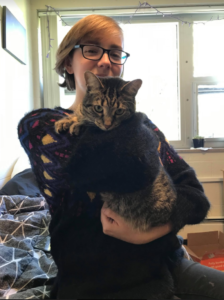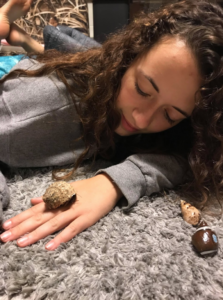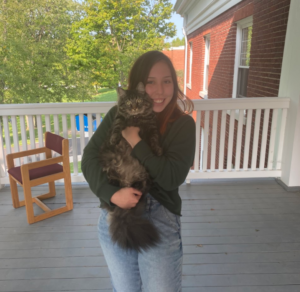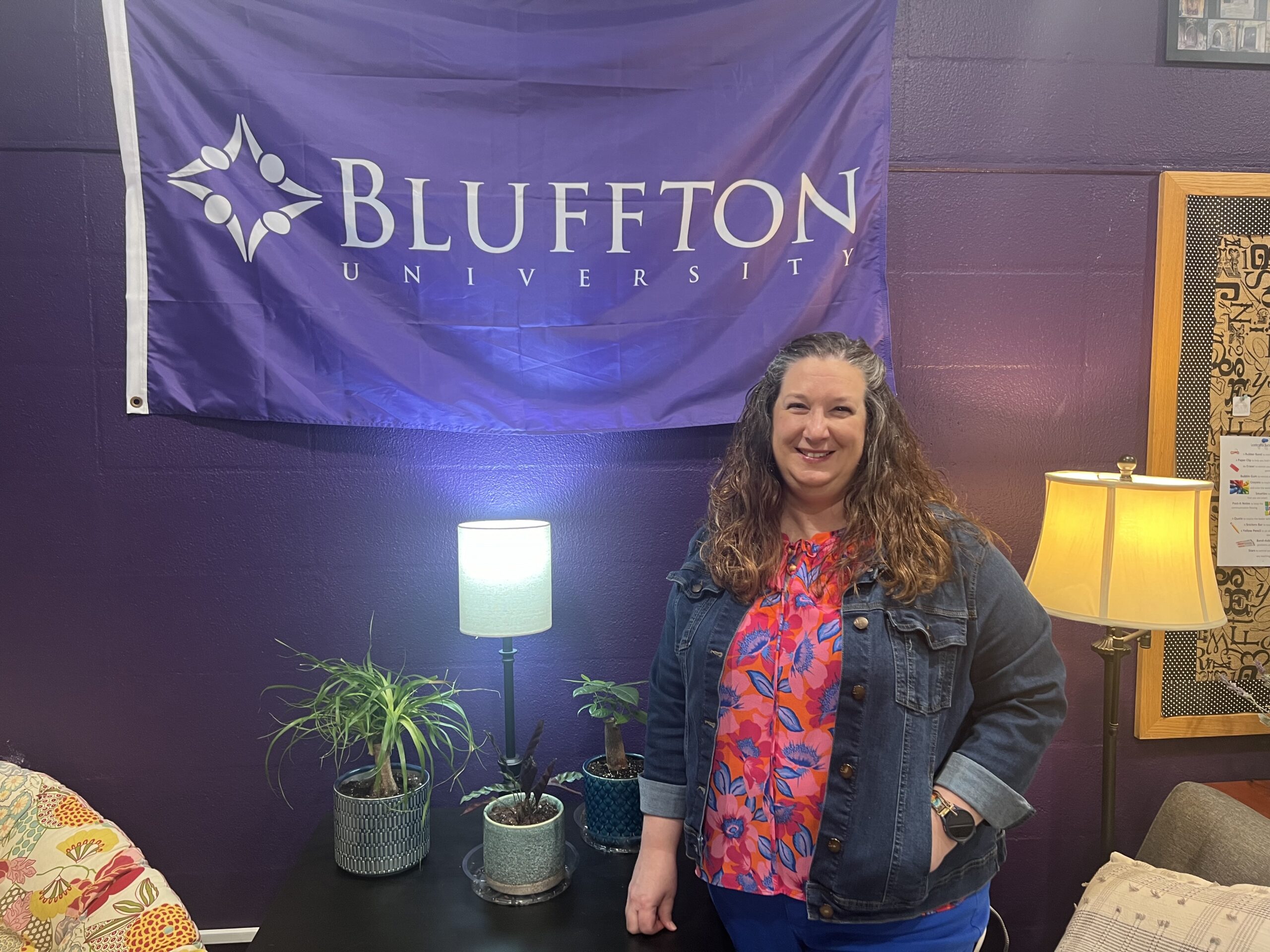The 2020-21 school year has brought on new challenges and stresses for many students. For residential students with different and specific needs, they can apply for an emotional support animal. Some students face these challenges with their tiny companion.
Residence Life at Bluffton University does allow fish and hermit crabs to live with you in your dorm room. For larger animals with higher maintenance, you need to have a specific need and have a doctor’s note to get an emotional support animal.

Abi Baker with her emotional support cat, Kitty. Photo by Olivia Westcott
Abi Baker, a sophomore living in Bren-Dell Hall, lives with her cat, Kitty. Baker has had Kitty for five years now and made the decision to bring her to college since Kitty is attached to her.
Baker lives in a single and said having Kitty there makes things less lonely. During this time of social distance, she doesn’t have to social distance from Kitty.
“Kitty is something I can talk to even if she doesn’t always talk back,” said Baker.
Laura Irwin, another sophomore living in Bren-Dell Hall, has three hermit crabs. Only two of the three are named at the moment, and their names are Daryl and Bubbles.
Irwin has had Daryl since Christmas of 2019, Bubbles since over the summer and has just gotten the third hermit crab two weeks ago.
“I’ve been raising animals since early childhood, and coming to college and not having that would have really been a huge culture shock to me,” said Irwin. “Caring for something other than myself would give me an obligation to keep fighting for myself, fighting for my education.”

Laura Irwin holding her hermit crab, Daryl. The crabs were a little shy. Photo by Olivia Westcott
She said having the crabs during the pandemic has brought her comfort. The crabs help to remind her to see things in a simpler way and not worry too much about the world around her during this time.
Irwin said if someone wants a small animal like the crabs or fits the requirements to get an ESA, then they should. She said it all depends on where one finds their joy, but for her it is taking care of animals that has helped her.
Senior, Jenny Dorsey lives in an Old Ropp single with her cat, Bug.
Dorsey rescued Bug from on campus when she was about four weeks old, and they have been together for almost a year now.
Dorsey said she can be very anxious at times, and having Bug there, in general, helps her a lot.
“She’s a constant in my life no matter what’s going on,” said Dorsey. “She’s always there, she also gives me a schedule I have to follow. She’s very kind. When I cry, she comes over and she sits with me.”

Jenny Dorsey with her emotional support cat, Bug, on the balcony of Old Ropp. Photo courtesy of Jenny Dorsey.
After being sent home in March, Dorsey said she had started taking Bug on walks and was able to have new experiences with her when the lockdown was happening.
Since Dorsey and Bug live in Old Ropp, they go out onto the Ropp balcony to spend some time outside, and she bought some new toys for Bug so she would have new things to explore and play with despite being in the same room they were in last year.
Dorsey said regardless of mental health, having an animal can help lessen the chances of having heart disease. She said if you are able and require it, you should get an ESA since they help bring structure to your life, something hard to find while in college.






